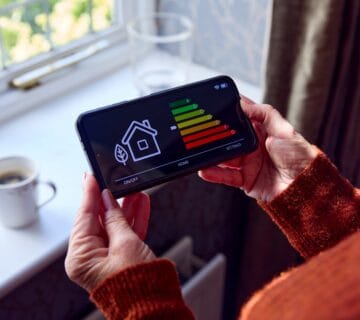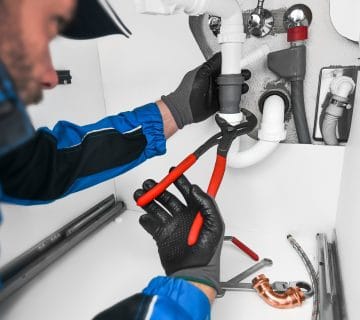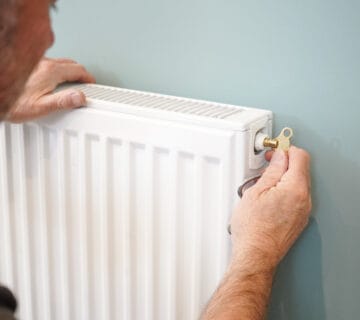What to expect when buying a house with electrical problems
Sometimes your dream home comes up, but it’s in need of a little bit of TLC. More often than not, the most frequent issue to appear on a survey is electrical problems. The cons of electrical problems are outweighed by all of the other pros of the house that have made you fall in love with it.
So you need to know what to expect. When purchasing a home, you need to have as much information as possible, especially when you are aware of a problem with the electrics. We’re here to help guide you through the process.
1) Identifying electrical problems
To start, any and all electrical problems need to be identified. This will give you a clearer picture of the work that needs to be done. You’ll also avoid any unwanted surprises further down the line.
- Signs of outdated wiring: Look for flickering lights, frequently tripped circuit breakers, or outlets that don’t work.
- Visible damage: Check for frayed wires, charred outlets, or loose connections.
- Inspection reports: Hire a professional home inspector, such as Home Service Reports, to thoroughly assess the electrical system for any issues.
2) Common electrical problems:
Knowing the most common electrical problems can make it easier for you to look out for them. This also makes it easier to get a guide price from an electrician on what it will cost to rectify.
- Overloaded circuits: This occurs when too many appliances are plugged into a single circuit, leading to overheating and potential fire hazards.
- Faulty wiring: Outdated or improperly installed wiring can pose serious safety risks, such as electrical fires or electric shocks.
- Insufficient outlets: Inadequate outlets can lead to the use of extension cords, increasing the risk of tripping hazards and overloading circuits.
3) Assessing the severity:
You need to be aware of the severity of the electrical problem at hand to ensure you stay safe, as well as what it may cost you in the long run.
- Determine whether the electrical problems are minor, requiring simple repairs, or indicative of more significant underlying issues.
- Prioritise addressing any electrical issues that pose immediate safety risks to occupants.
4) Negotiating with Sellers:
You’ve found the electrical problems, and now you need to decide whether the house is worth the selling price. Once you know the extent of the repairs, negotiating the price of the property is your next step.
- Use the inspection report findings to negotiate with the seller for necessary electrical repairs or upgrades.
- If the cost of repairs is substantial, negotiate for a reduction in the purchase price to account for the necessary repairs.
5) Budgeting for repairs:
This is the big one, which ties into negotiating the price of the property with the sellers. You need to know you’ll have the funds to carry out the repairs and live in a safe and functioning home.
- Get quotes from qualified electricians to understand the cost of repairing the identified electrical problems.
- Factor repair costs into your budget. Ensure you have the financial resources to cover any necessary repairs.
6) Importance of Hiring Professionals:
Now we all love a bit of DIY, especially when buying a house, but it’s important to know when to get the professionals in.
- While some minor electrical fixes can be done by homeowners, bigger electrical problems should always be carried out by qualified electricians.
- Hiring qualified electricians ensures that electrical work is done safely and up to code, reducing the risk of accidents or further damage.
7) Future-proofing Your Electrical System:
Don’t let the electrics in your house cause you any trouble in the future. Making repairs and improvements is always a worthwhile investment for safety and functionality. Having electrical problems rectified before or when you first move in means you have little to no furniture, etc. to be in the way when repairs are taking place, and you have peace of mind that the home you will be living in is safe.
- If the house has outdated wiring or insufficient outlets, investing in electrical upgrades can enhance safety and convenience.
- Anticipate your future electrical needs, such as installing additional outlets for electronic devices or upgrading to energy-efficient lighting.
- Having the electrics up to spec can also increase the value of your home, making it a worthwhile investment.
Armed with all of this information, the process of buying a house with electrical problems can be slightly less daunting for you. With time and investment, the electrical problems that first put doubts in your mind about buying the property will soon be a distant memory, and you’ll be free to enjoy your new home.
What is the report I need to check the electrics?
An EICR (electrical installation condition report) is the report that will be carried out to identify any faults. An EICR is like a health check up for your new home’s electrical system. It’s a thorough examination carried out by a qualified electrician to ensure that the electrical installation in your potential new home is safe and up to standard.
What is included in an EICR?
When you have an EICR carried out, it will include
- A complete test and inspection of the property’s electrical installation
- Circuit testing and descriptions
- Identifies any areas that are dangerous or need improvement.
- Suggestions and estimates of any rectification
What would fail an EICR?
Some common things to fail on an EICR are…
- Unsafe wiring: old or damaged wiring that poses a risk of electric shock or fire.
- Inadequate earthing: A poor earthing system can increase the risk of electric shock.
- Outdated fuse boxes: old consumer units that don’t meet modern safety standards.
- Lack of RCD Protection: missing or malfunctioning RCDs, which protect against electric shock.
Why do I need an EICR?
Did you know the average cost to rewire a 3-bedroom home is £3k–£5k? Carrying out an EICR report before buying a house provides you with negotiating power and ensures you are fully aware of the cost implications when purchasing your home.
Where can I book an EICR?
Home Service Reports offer ECIR reports which will be carried out by one of our NAPIT qualified electrical engineers. Our reports can be booked online or by email at customer.services@homeservicereports.co.uk to enquire about a date to suit you.








